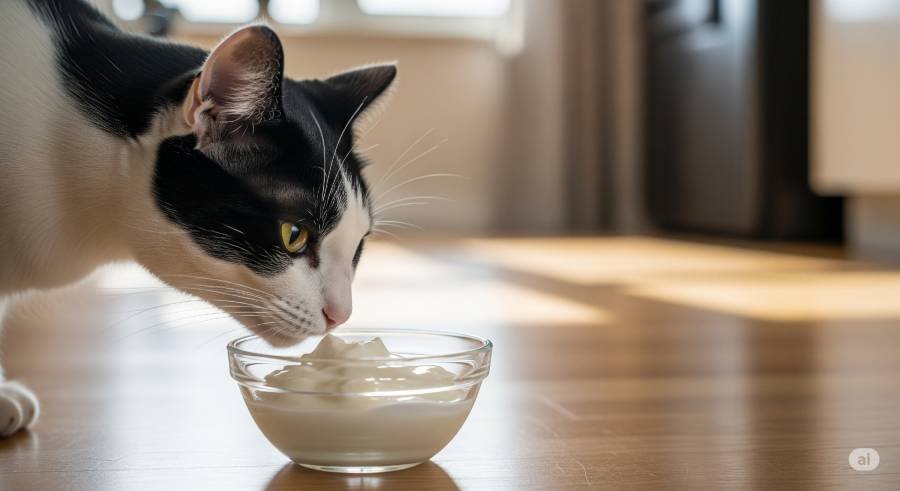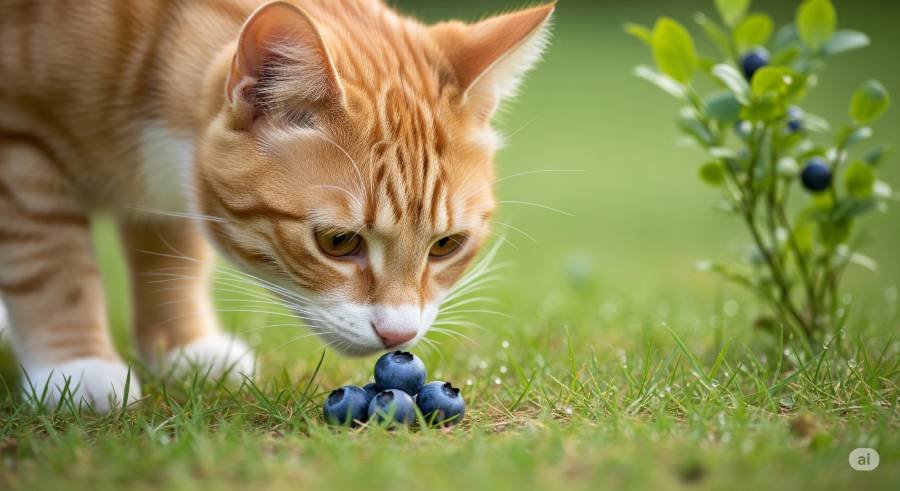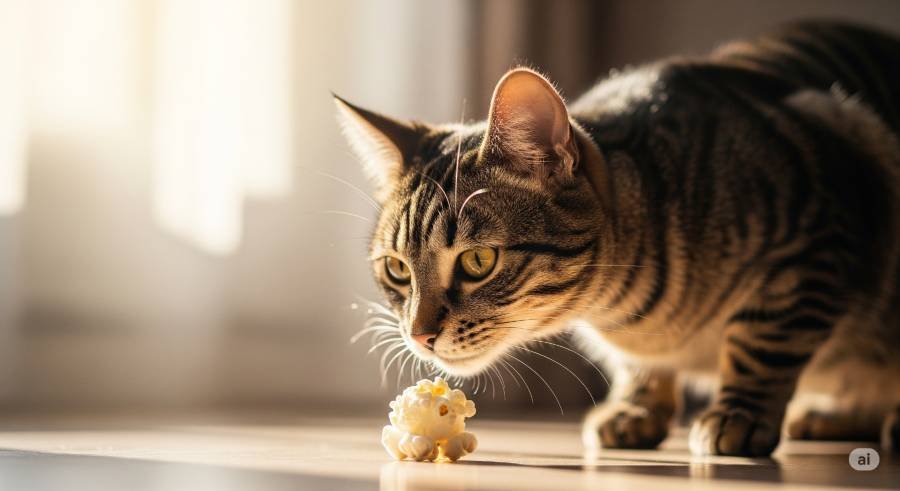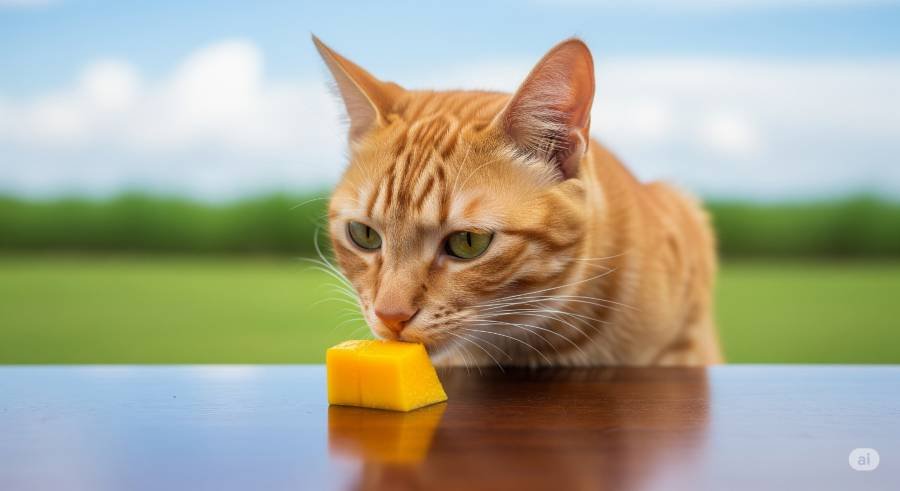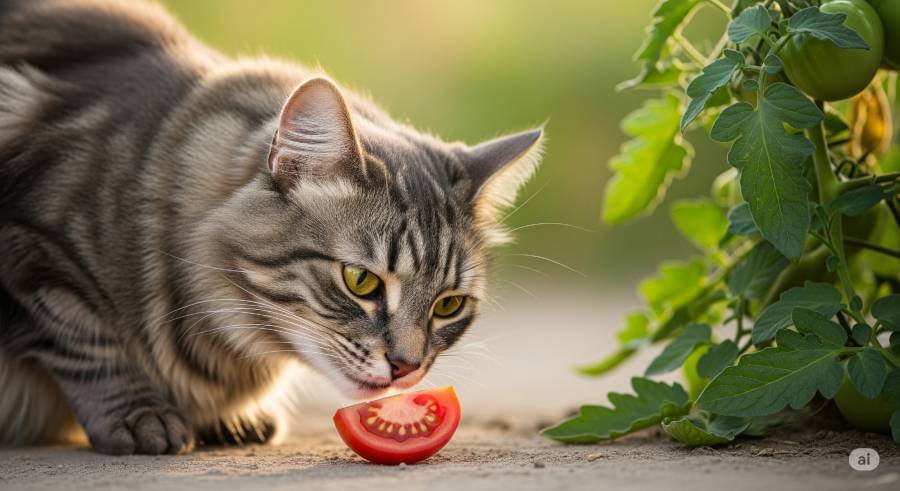Yes, cats can eat honey, but it is generally not recommended as a regular part of their diet. While honey isn’t toxic to cats, it offers very little nutritional benefit and poses several potential health risks due to its high sugar content.
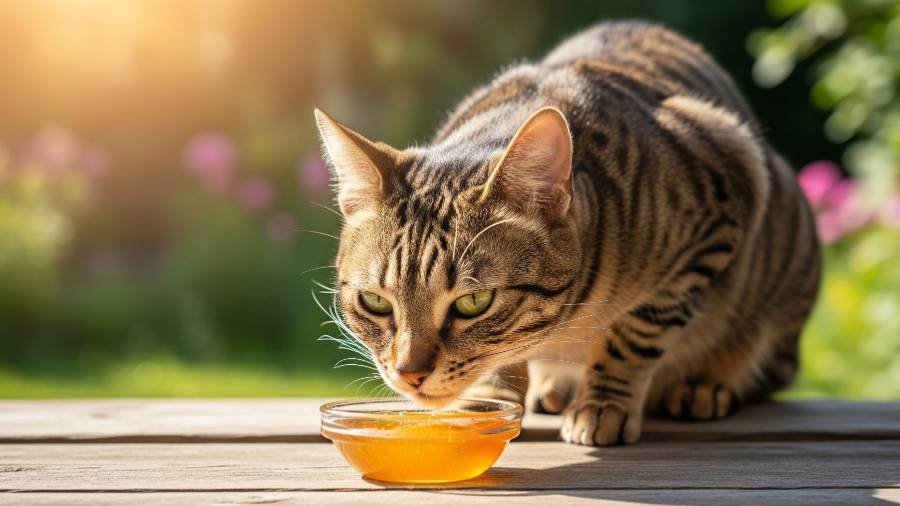
The Carnivorous Nature of Cats and Honey
Cats are obligate carnivores. This means their bodies are designed to derive nutrients primarily from animal protein. Their digestive system is specialized for processing meat, not sugars or plant-based foods.
Unlike humans, cats do not possess taste receptors for sweetness, so they don’t even taste sweetness in honey the way we do. This means they don’t actually crave it or enjoy it for its sweet flavor.
Potential Risks of Feeding Honey to Cats
Despite honey not being directly poisonous, several concerns arise when considering feeding honey to cats.
High Sugar Content
The most significant concern is honey’s high sugar content. A small bit of honey is essentially pure sugar. Cats do not need sugar in their diet. Their bodies are not equipped to metabolize large amounts of sugar efficiently. Regular consumption can lead to several health problems.
- Weight Gain and Obesity: Excess sugar intake quickly translates to extra calories. This can lead to weight gain and obesity in cats. Obesity contributes to a range of serious health issues, including diabetes and joint problems.
- Diabetes: Just like in humans, a diet high in sugar can increase a cat’s risk of developing feline diabetes. This is a chronic condition requiring lifelong management.
- Dental Issues: Sugar promotes bacterial growth in the mouth. This can lead to plaque buildup, tartar, and dental diseases like gingivitis and periodontitis.
Risk of Botulism
Raw or unpasteurized honey can contain spores of Clostridium botulinum. While adult humans typically have digestive systems robust enough to handle these spores, a cat’s digestive system, especially that of kittens or cats with compromised immune systems, might not be. These spores can germinate in the gut and produce toxins, leading to botulism. Botulism is a severe and potentially fatal neurological condition.
Digestive Upset
A cat’s digestive system is not designed to process large amounts of sugar or the complex carbohydrates found in honey. Even a small amount of honey can cause digestive upset, leading to vomiting, diarrhea, or an upset stomach. This is particularly true if a cat is given honey frequently or in significant quantities.
Allergic Reaction
Although rare, some cats might have an allergic reaction to honey. Symptoms could include itching, swelling, vomiting, or difficulty breathing. If you suspect an allergic reaction, seek veterinary attention immediately.
What About Nutritional Benefits?
Humans often consume honey for its purported health benefits, such as its antioxidant properties or soothing effects for sore throats. Honey offers some anti-inflammatory properties and antioxidants.
However, the amount a cat would need to consume to gain these benefits would far outweigh the risks associated with its high sugar content.
For cats, any minor nutritional benefits from honey are negligible compared to the complete and balanced nutrition provided by high-quality commercial cat food. A cat’s immune system is best supported through a species-appropriate diet.
When Might Honey Be Considered? (Under Veterinary Guidance Only)
In very rare and specific circumstances, a veterinarian might suggest a tiny, diluted amount of honey for therapeutic purposes. This would be under strict veterinary supervision.
- Temporary Sore Throat Soother: Some vets might suggest a tiny, diluted amount to soothe a very minor throat irritation, but this is uncommon and not a general recommendation.
- Energy Boost: For extremely weak or hypoglycemic cats in an emergency, a vet might administer a controlled dose of sugar, sometimes in the form of honey, to quickly raise blood glucose levels. This is a medical intervention, not a dietary supplement.
These are exceptional cases. They are never an excuse to regularly feed honey to your cat without direct veterinary instruction.
Alternatives to Honey for Cats
If you are looking for treats or supplements for your feline friends, there are much safer and more beneficial options than honey.
- Commercial Cat Treats: Opt for treats specifically formulated for cats. These are designed to be palatable and nutritionally appropriate.
- Cooked Lean Meats: Small, unseasoned pieces of cooked chicken, turkey, or salmon can be excellent treats. For more on safe human foods, see: what human food can cats eat.
- Safe Vegetables: Certain vegetables, cooked and in small amounts, can offer fiber. Explore options like can cats eat carrots or can cats eat broccoli.
- Safe Fruits: A few fruits are safe in very small quantities, but like vegetables, they are not a natural part of a cat’s diet. See: what fruits can cats eat.
- Probiotics/Supplements: If your cat needs digestive support or an immune system boost, consult your veterinarian about appropriate feline-specific probiotics or supplements.
Can cats eat honey? While honey isn’t directly toxic, the answer is a resounding “not really recommended.”
Its high sugar content poses significant risks for feline health, including weight gain, diabetes, and dental issues.
The risk of Clostridium botulinum spores, especially in raw honey, is also a serious concern. Cats, as obligate carnivores, do not require or benefit from sugar in their diet.
There are far safer and more beneficial alternatives for treats or dietary supplements. Always prioritize a balanced, meat-based cat food for your pet’s primary nutrition.
If you have any concerns about your cat’s diet or health, always consult your veterinarian for personalized advice.

